Toyota Highlander Hybrid Review
You wouldn't turn a golf cart into an SUV, so why turn an SUV into a golf cart? And yet here we are in a Toyota Highlander Hybrid, gliding away from a traffic light like we're heading for the eighth tee. Mash the gas and the hybrid's petrol-powered engine kicks-in with the tiniest of judders. Instantly, there's more than enough petrol-powered propulsion to quickly distance ourselves from the following foursome– just as long as we stay on the fairway. According to the Toyota Motor Corp, even the high-spec, four-wheel-drive Highlander Hybrid SUV is "not designed to be driven off road".
Nor is it designed to be driven like a sports car. Which is a shame. You only need a Nissan Pathfinder or Ford Explorer doggie-sniffing your rear bumper once to realize that a surprising number of SUV owners like to drive like Hell. On the face of it, the Highlander Hybrid seems the ideal whip for supersonic Soccer Moms and NASCAR dads: 268hp (gas and electric engine power combined), zero to 60 in just 7.3 seconds and a tree-hugging rep to hide behind at cocktail parties and speed traps. The reality is less stirring.
Put the pedal to the metal and the Highlander Hybrid's V6 sounds like a severely stressed flat four. Toyota says the mechanical din is gas-fired, but the hybrid's exhaust note is a dead ringer for an electric back massager (or a Chevy Vega). Equally disconcerting, the Highlander Hybrid's tiller does a remarkable imitation of torque steer. It's actually a computerized kerfuffle between electronically-assisted power steering, battery-powered low-end torque, a continuously variable transmission, four-wheel-drive and an electric motor attached to the rear wheels. Whatever; the hybrid's high-speed helming inspires about as much confidence as a Pontiac Grand Prix.
On the plus side, the Highlander Hybrid's handling is remarkably composed, thanks in part to the weight of the electric motor hanging out back. The SUV boasts a four-wheel independent MacPherson strut suspension with front and rear stabilizer bars. The set-up keeps body roll to a minimum and delivers sure-footed poise through the twisties. It also provides an entirely civilized ride over rough [paved] roads.
Enthusiastic drivers will not be impressed by the Toyota's gas-saving Goodyears. The aptly named Integrity tires are as safe as houses– and just about as agile. The sidewalls cry Uncle long before the chassis has its final say. The Highlander Hybrid's regenerative brakes go a long way towards making up for the reduced fun factor. Unlike some other battery-recharging stoppers, the Highlander's anchors feel normal underfoot and offer plenty of retardation. They're thoroughly dependable.
In short, Toyota's claim that the Highland Hybrid is an environmentally-sound hot rod is only slightly more credible than their assertion that they want to raise prices to help beleaguered US automakers. Toyota's come-on– — "smoke them at the stoplight and the pump"– is fundamentally misguided because A) It's not a good idea to smoke at a gas pump B) see above and C) irredeemable lead foots can reduce the hybrid's potential gas mileage by up to 40%.
Fuel efficiency is, of course, the real reason anyone would consider buying a Highlander Hybrid over its petrol-powered sibling. Well, that and tailpipe emissions. On both fronts, the Highlander Hybrid is a direct hit. Driven judiciously, fuel consumption hovers in the high twenties, in both town and country. (Granted, that's some ten mpg less than a hybrid car; but it's also ten mpg more than a typical SUV.) As a Super Ultra Low Emissions Vehicle, Toyota's gas-electric SUV spews less toxins than a snoozing cigar smoker. The company claims their Synergy Drive Highlander emits 80% less pollution than an average mid-sized SUV. They even pressurized the fuel tank to trap fuel vapors at refueling time. Suburban environmentalists rejoice: the PC SUV has landed!
PC riders also enjoy excellent visibility, terrific seats, serious tuneage and plenty 'o cupholders. The cabin apportions its interior volume flawlessly. Even the longest of eco-warriors has enough leg room to stretch out and contemplate the intricacies of global warming– although some air vents in the back would help prevent over-heating on a more personal level. And I don't know if the silver metal-effect plastic infesting the Highlander's dash and surrounds is recyclable, but I can't think of any other reason for its existence.
I am sure about the Highlander Hybrid's appeal. It's the perfect vehicle for people who never really wanted an SUV, but bought one anyway. People who learned to like the genre's elevated driving position almost as much as they learned to hate SUV's for fouling the air and sucking-up hyrdocarbons. The Highlander Hybrid is both a technological triumph and clever marketing. By creating a golf cart – SUV hybrid, Toyota has once again proven itself the Tiger Woods of automotive manufacturers: ready to improvise, adapt and win.
More by Robert Farago
Latest Car Reviews
Read moreLatest Product Reviews
Read moreRecent Comments
- SCE to AUX All that lift makes for an easy rollover of your $70k truck.
- SCE to AUX My son cross-shopped the RAV4 and Model Y, then bought the Y. To their surprise, they hated the RAV4.
- SCE to AUX I'm already driving the cheap EV (19 Ioniq EV).$30k MSRP in late 2018, $23k after subsidy at lease (no tax hassle)$549/year insurance$40 in electricity to drive 1000 miles/month66k miles, no range lossAffordable 16" tiresVirtually no maintenance expensesHyundai (for example) has dramatically cut prices on their EVs, so you can get a 361-mile Ioniq 6 in the high 30s right now.But ask me if I'd go to the Subaru brand if one was affordable, and the answer is no.
- David Murilee Martin, These Toyota Vans were absolute garbage. As the labor even basic service cost 400% as much as servicing a VW Vanagon or American minivan. A skilled Toyota tech would take about 2.5 hours just to change the air cleaner. Also they also broke often, as they overheated and warped the engine and boiled the automatic transmission...
- Marcr My wife and I mostly work from home (or use public transit), the kid is grown, and we no longer do road trips of more than 150 miles or so. Our one car mostly gets used for local errands and the occasional airport pickup. The first non-Tesla, non-Mini, non-Fiat, non-Kia/Hyundai, non-GM (I do have my biases) small fun-to-drive hatchback EV with 200+ mile range, instrument display behind the wheel where it belongs and actual knobs for oft-used functions for under $35K will get our money. What we really want is a proper 21st century equivalent of the original Honda Civic. The Volvo EX30 is close and may end up being the compromise choice.



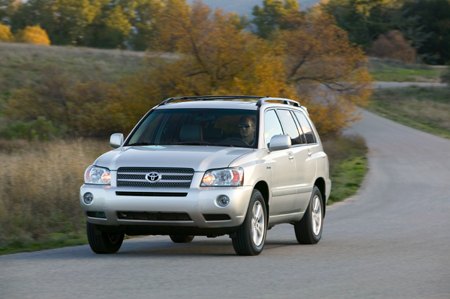















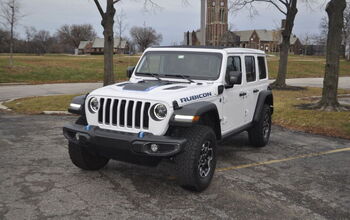



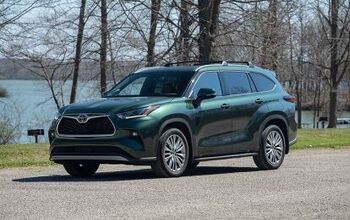
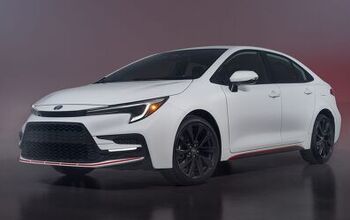

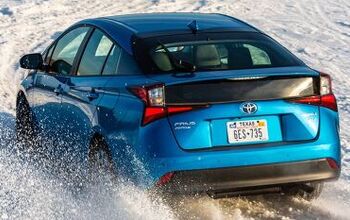










Comments
Join the conversation